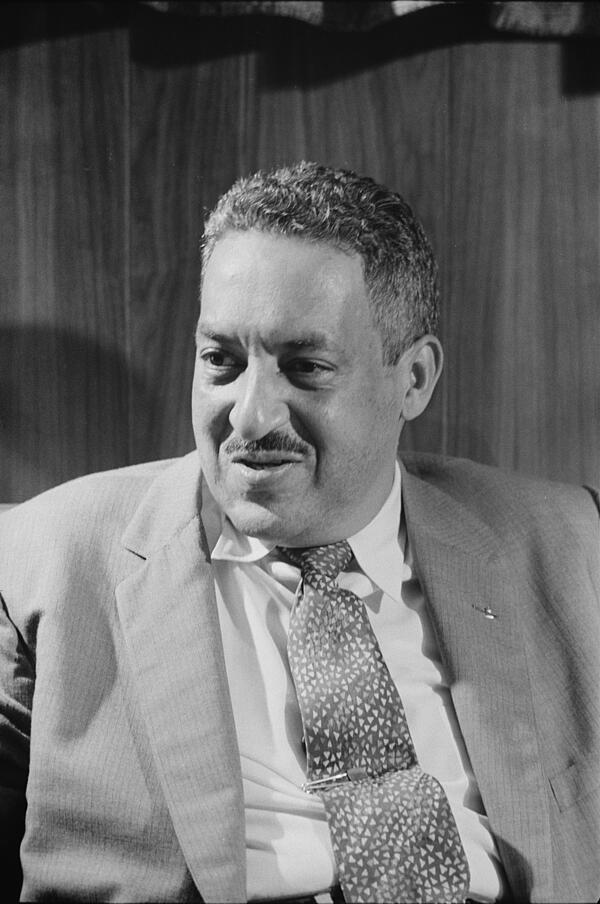Thurgood Marshall
When Thurgood Marshall was appointed to the Supreme Court in 1967, he made history. Marshall was the first African American to serve as an Associate Justice of the Supreme Court. During his time as a lawyer and judge he backed many seminal civil rights cases, including Brown v Board of Education.
Born on 2 July 1908, Marshall grew up in Baltimore, Maryland. He studied law at Lincoln University alongside Langston Hughes. Marshall gradually developed an interest in civil rights issues, and when applying for law school he dismissed the University of Maryland School of Law or its segregation policy. In 1933 he graduated from Howard University of Law with a law degree.
In 1934, Marshall began work with the Baltimore NAACP joined its national legal staff two years later. His first big case saw him represent Donald Gaines Murray in 1936. Murray was a student who had been rejected from the University of Maryland Law School because he was black. Marshall argued that, "since the State of Maryland had not provided a comparable law school for blacks that Murray should be allowed to attend the white university”. He won the case.

Marshall became the NAACP’s chief legal officer in 1938.
In 1940, Marshall represented four black men convicted for the murder of a white man in Florida and won. In the same year, he was appointed Chief Counsel for the NAACP.
Marshall’s most well known case in 1954 with Brown v Board of Education of Topeka.
In this landmark case, the Supreme Court ruled that segregation in school was unconstitutional. The legal doctrine of ‘separate but equal’ had governed the education system, but it was clear that the education on offer for black students was anything but equal. Brown v Topeka declaredsegregation in schools unconstitutional.
Marshall was also involved in the Little Rock High School case following the town’s resistance to desegregation. In December 1959, the Supreme Court ruled that the school board must reopen the schools in Little Rock and resume the process of desegregating the city’s schools.
Marshall was a hugely successful lawyer - Marshall won 29 out of 32 cases in the Supreme Court.
President John F. Kennedy appointed Marshall to the United States Court of Appeals for the Second Circuit in 1961. Marshall remained on that court until 1965, when President Lyndon B. Johnson appointed him to be the United States Solicitor General. He was the first African American to hold the office.
As Solicitor General, he won 14 out of the 19 cases that he argued for the government
On 27 June 1991, Thurgood Marshall retired as a result of ill-health. He died aged 84 on 24 January 1993.
See also: Montgomery Bus Boycott
MLA Citation/Reference
"Thurgood Marshall". HistoryLearning.com. 2026. Web.
Key facts
| Name: | Thurgood Marshall |
| Birth Date: | 2 July 1908, Baltimore, Maryland |
| Death: | 24 January 1993, |
| Occupation: | NAACP lawyer and Associate Judge of Supreme Court |
